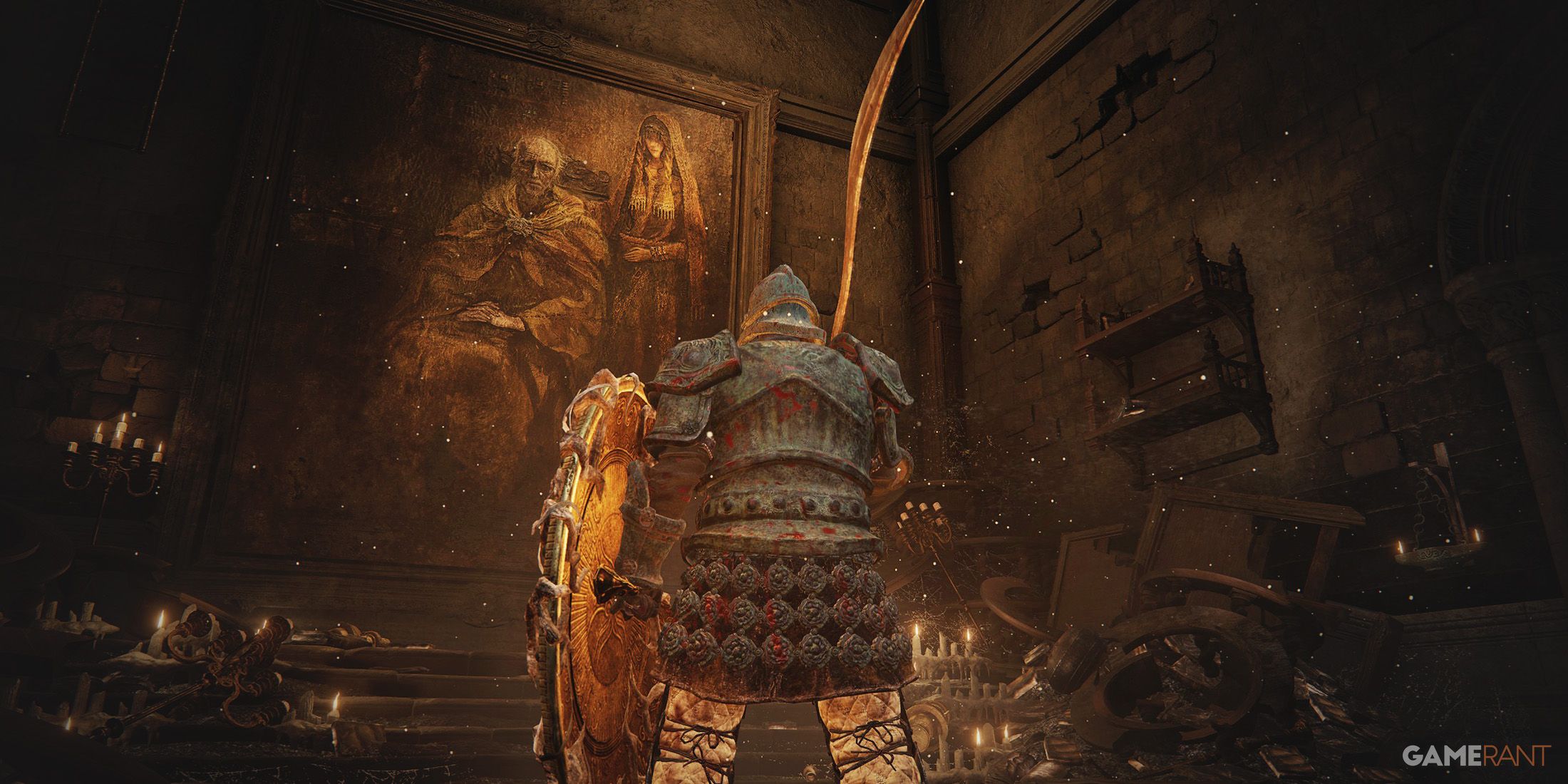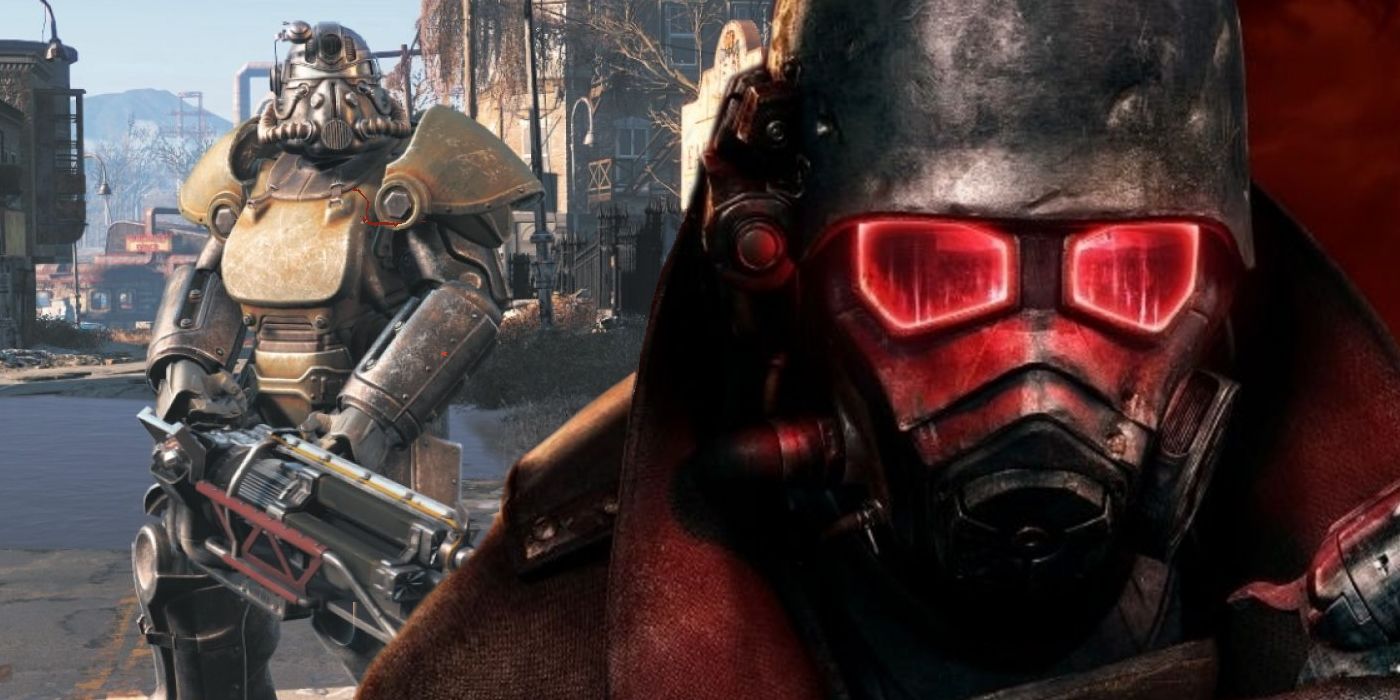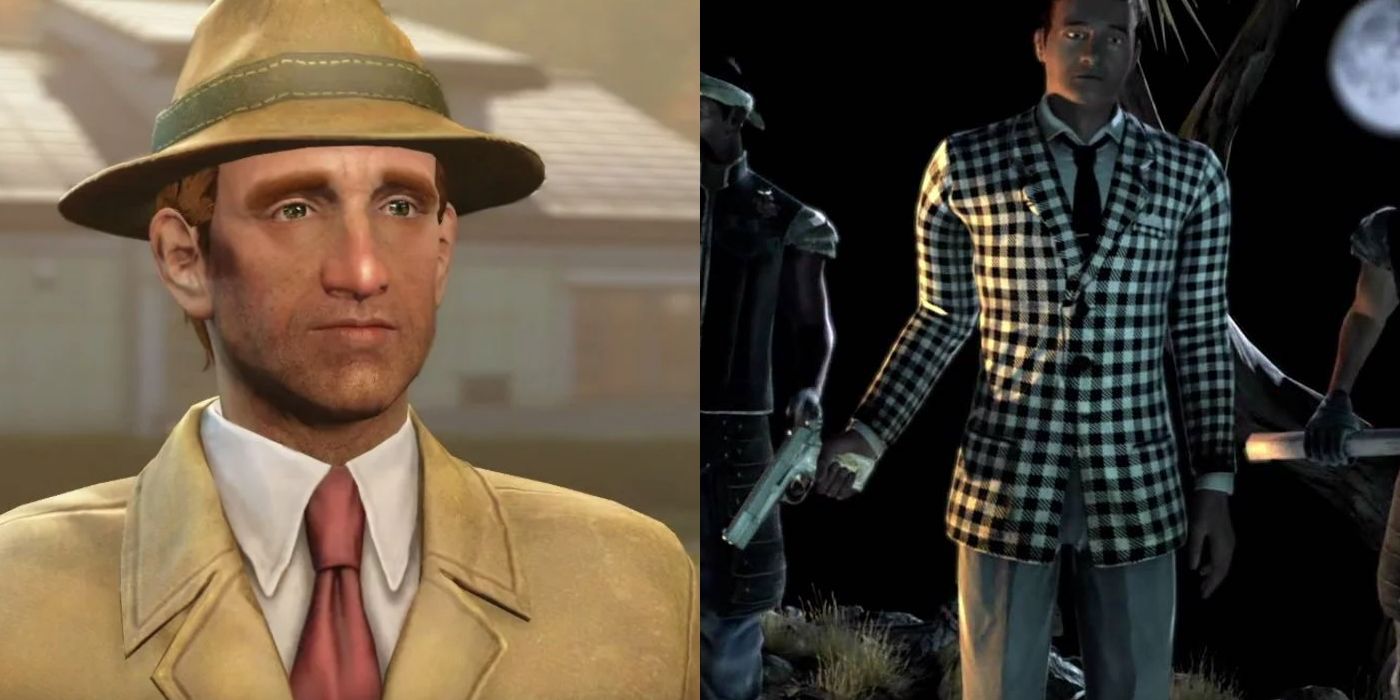Fallout 4 and Fallout: New Vegas may be part of the same series, but the two games have some significant differences. From the way they set up their stories to the games' open worlds, combat, and companions, the pair often pull in different directions when it comes to their core design principles.
Both Fallout 4 and Fallout: New Vegas also experimented with the Fallout formula in ways that the other game did not. Here's a breakdown of all of the differences, and how they make two games which seem similar on a surface level each very different experiences to play.
Fallout Openings And Player Characters
Fallout 4 and New Vegas begin in two very different ways. Fallout: New Vegas starts with the Courier being shot in the head and left for dead by Benny and his associates. They awaken in Doc Mitchell's office in Goodsprings, determine their appearance and basic stats, and are sent out into the Mojave Wasteland with a single objective should they choose to pursue it — finding Benny.
This introduction is notably non-prescriptive, even for a Fallout game. It is one of the few Fallout intros that doesn't begin in a Vault-Tec vault, leaving the player character's identity and past in the hands of the player far more than most installments in the series. The personality of the Lone Wanderer from Fallout 3 may have largely been under the player's control, but they are always a 19-year-old who grew up in Vault 101 and is leaving in pursuit of their missing father, James.
This comes with pros and cons: There is far less reason to be driven to complete the main quest of Fallout: New Vegas at first than most other Fallout games. In fact, pursuing the man who once shot them in the head could understandably be the last thing on the Courier's list. However, it also makes the Courier a uniquely flexible protagonist in the franchise, a blank slate more akin to most Elder Scrolls' characters than Fallout games.
In contrast, Fallout 4's introduction is far more prescriptive than both Fallout: New Vegas and arguably the Fallout games preceding it. The player's family is completely prescribed at the start of the game — they have a heterosexual spouse and a young child, Shaun. The fact that the player starts before the Great War of 2077 has its advantages in terms of immersion.
Like their player character and unlike the Courier, the player's complete lack of familiarity with the open world they're entering makes a lot more sense. However, the degree to which the Sole Survivor's pre-War life is set in stone also makes it harder for players to immerse themselves in that player character if they had something else in mind for their backstory. Fallout: New Vegas prioritizes flexibility and freedom, while Fallout 4 prioritizes the characterization of the player character.
This difference is also exacerbated by the fact that Fallout 4's player character is the only voiced protagonist in Fallout history. Anyone hoping to roleplay as a kooky old man or a bright-eyed teenager will have a far easier time doing so in New Vegas than Fallout 4.
The separation between Fallout 4's player and its player character also extends to dialogue options, which in the retail release don't directly represent the words the player character will actually speak. Combined with the optional third-person camera during dialogue, and Fallout 4 often resembles BioWare games like Mass Effect and Dragon Age more than it does New Vegas or Fallout 3.
Fallout World Design And Combat
The two games' world designs are also quite different. Fallout 4 takes place almost exclusively within the ruins of Boston, with several settlements like Diamond City and Goodneighbor formed in famous location. Western Massachusetts is scaled down more significantly than Boston itself, with distances between towns like Concord and the city of Boston drastically reduced. Despite being named for a city, Fallout: New Vegas' city is only a small part of the map, much of which is desert with a scattering of small towns from Primm to Nipton that run up against and over the real-world border between Nevada and California.
Combat in Fallout 4 was far more in-line with other modern first-person shooters than New Vegas. Unlike New Vegas, for example, Fallout 4's VATS system doesn't stop time completely, instead slowing it down significantly but still adding a sense of real-time peril. Fallout 4's combat is generally more accessible than New Vegas', which can take some time to get used to. However, New Vegas also has more options for dealing with encounters than just violence.
In New Vegas, the Lady Killer perk causes the player to do more damage to female characters, but it also unlocks new dialogue options. The same can be said for Sneering Imperialist, Confirmed Bachelor, and many other Fallout perks and stats in the game. In Fallout 4 perks like Lady Killer add the extra damage, but only make dialogue checks more likely to succeed rather than adding new interesting options that help diversify subsequent playthroughs.
More Comparisons And Fallout's Future
Both games do a pretty good job of characterizing their companions, especially in comparison to games like Skyrim. In both games, the player's companions have their own quests, own motivations, and backstories than are slowly uncovered. New Vegas, however, has no companions with romance options, leaving romantically inclined Couriers fresh out of luck. Fallout 4 also has Bethesda's settlement building system. While New Vegas lacks this, the system and its infinitely recurring quests were not particularly well received in Fallout 4 and the lack of a building system in New Vegas is rarely discussed as one of the game's weak points.
Fallout 4 and Fallout: New Vegas both take place in the same world, but they are very different games. Fallout 4 is a faster-paced shooter with less room for dialogue and a far more prescriptive story. In contrast, New Vegas gives the player far more freedom to define their character's backstory and to explore the world with dialogue as much as they do combat, though that combat is far clunkier. Many fans will be hoping to see elements from both games return in the Fallout franchise's future, combining some of the technically impressive aspects of Fallout 4 with the kind of non-prescriptive storytelling found in Fallout: New Vegas.
Fallout: New Vegas is available now on PC, PS3, and Xbox 360, and Fallout 4 is available now on PC, PS4, and Xbox One.







